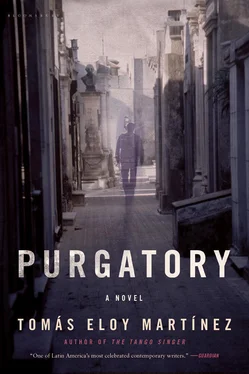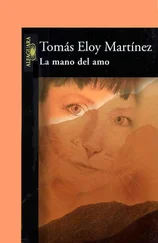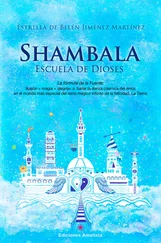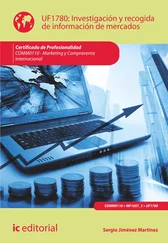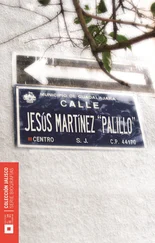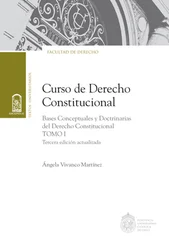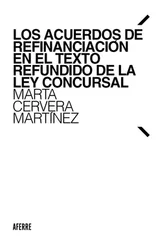Tomás Eloy Martínez - Purgatory
Здесь есть возможность читать онлайн «Tomás Eloy Martínez - Purgatory» весь текст электронной книги совершенно бесплатно (целиком полную версию без сокращений). В некоторых случаях можно слушать аудио, скачать через торрент в формате fb2 и присутствует краткое содержание. Год выпуска: 2008, Издательство: Publishing PLC, Жанр: Современная проза, на английском языке. Описание произведения, (предисловие) а так же отзывы посетителей доступны на портале библиотеки ЛибКат.
- Название:Purgatory
- Автор:
- Издательство:Publishing PLC
- Жанр:
- Год:2008
- ISBN:нет данных
- Рейтинг книги:5 / 5. Голосов: 1
-
Избранное:Добавить в избранное
- Отзывы:
-
Ваша оценка:
- 100
- 1
- 2
- 3
- 4
- 5
Purgatory: краткое содержание, описание и аннотация
Предлагаем к чтению аннотацию, описание, краткое содержание или предисловие (зависит от того, что написал сам автор книги «Purgatory»). Если вы не нашли необходимую информацию о книге — напишите в комментариях, мы постараемся отыскать её.
"Purgatory" narrates the anxiety of the love lost and then found in a magnificent reconstruction of the sinister events that went down in the time of the regime in Argentina.
Purgatory — читать онлайн бесплатно полную книгу (весь текст) целиком
Ниже представлен текст книги, разбитый по страницам. Система сохранения места последней прочитанной страницы, позволяет с удобством читать онлайн бесплатно книгу «Purgatory», без необходимости каждый раз заново искать на чём Вы остановились. Поставьте закладку, и сможете в любой момент перейти на страницу, на которой закончили чтение.
Интервал:
Закладка:
‘Papers,’ echoed Dupuy. He sat for a moment in silence. Marcelo feared his silences more than his poisonous tongue. ‘Paper is a perishable material. Are these papers scattered around the place?’
‘More so than I would like.’
‘How long would it take you to get them all in one place? You need to gather them together as if they were the bones you’re going to be confronted with at trial. There can’t be a single scrap, a stamp, a file missing.’
‘Twenty-four hours, thirty-six, I’m not sure. Maybe a little longer if the branches don’t move quickly.’
‘That’s a long time. You need to get your press office to issue a statement today saying that you are going to get your files in order so that the government can see that you have acted with complete rectitude. You need to denounce the damage being done to your business by these unfounded rumours. And you need to promise that, as soon as the audit is complete, you’ll pay back every last centavo. The statement needs to sound utterly sincere. Repeat that hypocritical Latin motto your bank uses: Fac recte . what’s the rest of it?’
‘I don’t understand, Dr Dupuy.’
Marcelito Echarri, who, as a student in Wharton, had solved the most complex theoretical equations, was completely at a loss. ‘If I ask for an audit, they’ll find enough evidence in half an hour to arrest me. I’d be better off leaving the country like you suggested. Chela and the baby will be fine, don’t worry.’
‘I’m not worried about them. I’m worried about me. You have dragged me and La República into this mess and you have to get us out. You can’t do it on your own, because in the state you’re in, you’re worthless. I’ll advise you. You and Chela and my grandson are going to disappear, but not yet.’
‘What should I do, Doctor? I’ll do whatever you say.’
‘Get your managers to gather all the paperwork together by tomorrow after you’ve issued your statement to the newspapers. Then announce that, while the audit is taking place, you are going to take a holiday with your wife and son. Choose your destination wisely. You might not be coming back.’
‘The papers will need to be handled by people we can trust. Don’t worry, I won’t forget anything.’
‘The way you’ve been recently, it’s impossible not to worry. Keep a close eye on the papers. I’ll send official vans to pick them up and drop them off at your bank’s head office. Nothing else is to be moved, not the furniture, not the paintings. When you lock up for the night, there will be an unforgettable fire.’
‘An accident? No one will believe it.’
‘It won’t be an accident, it will be an deliberate act of sabotage. An attack against you, against me, against the comandantes . Another terrorist attack by subversives. There won’t be anything left in the rubble.’
Two days later, on the radio from Miami, Marcelo Echarri declared that this atrocity (he used the word atrocity , everyone remembers that) had ruined him. All the money in the banks’ safes had been burned, he said, millions in bearer bonds, a Picasso harlequin, one of Francis Bacon’s cardinals, priceless, irreplaceable treasures. He had no doubt that subversive elements were responsible for the conflagration. ‘They have committed yet another crime against the country,’ he said, ‘against peaceful citizens and their savings.’
After this fleeting appearance, he vanished. The comandantes promised to mount an exhaustive investigation and track down the perpetrators wherever they were hiding. A few hours later, six suspects who had holed up in a warehouse on the docks were surprised by a naval patrol and died during the altercation. Marcelo moved with his family to the Bahamas, and when the last spark had died down, he moved to San Antonio, Texas, where he bought a luxury-car dealership and a house in the Dominion, the most expensive neighbourhood in the city. Chela phoned Emilia from Nassau to tell her she was pregnant again.
As usual on Saturday nights, Emilia does not feel like cooking and is preparing to order Japanese food from Sultan Wok or Megumi. Japanese food was an exotic concept back when she and Simón lived in Buenos Aires and she does not know whether he has tried it since, whether he likes it.
‘Why do you ask?’ her husband said. ‘I like what you like.’
Just as Emilia goes over to make the call, the phone rings. It is Nancy, worried because she has not heard from her for several days. She has decided to give back the file of newspaper clippings her friend gave her to organise. ‘I’ll bring it over,’ Nancy insists, ‘it’s all sorted.’
‘No. you can’t,’ Emilia says, ‘I’m going to be away for a couple of days.’
‘What about the file?’ Nancy is not about to give up.
‘Hang on to it. And stop bugging me.’ She doesn’t care when Nancy says she is offended. She’ll be back, she always comes back, she is a loyal, meek little puppy.
Simón is sitting at the drawing table and is sketching the outline of a map, an island. ‘I’ve been looking for this island for a long time,’ he says. ‘I find it, and when I try to pin down in space where it is, it slips through my fingers. Maybe that’s my mistake, maybe there is no place in space for it. I try to draw it differently. I put it down on paper and turn away for a minute, and when I look at it again, the island is gone. It has vanished.’
‘It must be situated in time, then,’ Emilia says, ‘and if it is, then sooner or later it will come back. Sooner and later are refuges in time.’
‘We’ve spent our lives making maps,’ says Simón, ‘and I still don’t know what they’re for. Sometimes I wonder if they’re not simply metaphors of the world. What do you think?’
‘Not metaphors, but maybe metamorphoses, like words or like the shadows we project. By the time a map has circumscribed reality, reality is already different. In the first geography lesson I ever took, the teacher told us that the principal purpose of maps is to stop people getting lost.’
‘The opposite of what your father wanted,’ says Simón. ‘Maps to make people lose their way, so they don’t know what day it is, what time it is, where those who still are, are. He would have liked you and me to draw maps in which people disappeared and became dust from nowhere.’
‘Maybe that’s what we did,’ Emilia says. ‘Maybe we were just figures on a map that he and the comandantes were drawing, and everyone on that map got lost. There’s nothing more disorienting than falling into a map and not knowing where you are.’
‘The writer with the slate who paced the corridors told us that twice he had disappeared inside a map. The first time was in Japan, he said, just after the war. He was supposed to be coming back from Nagasaki to Buenos Aires, he’d got his ticket, but he had barely any money. He was desperate. He spent his last yen on the taxi that took him to the airport. Bad luck always comes at the worst possible time, and that was what happened to him. There was torrential rain and all the flights were cancelled. If the writer didn’t make it to Tokyo that night, he would miss the weekly connecting flight to Buenos Aires. He didn’t speak a word of Japanese, didn’t have a penny to his name, as I said, he had no idea how to ask for food or shelter. He was worse than a beggar, he was a man without a language. Someone working for the airline took pity on him and gave him a ticket to Hakata train station. In nearby Fukuoka he would be able to take a flight to Tokyo and all his problems would be over. Miming, he asked how many stops it was to Hakata. Six stops, the attendant told him. To confirm it, he held up six fingers. The writer got on the train, saw an empty seat and rushed over to take it. All around him were other passengers relaxing in comfortable berths. The conductor offered him a white dressing gown, but he refused, he was afraid he might have to pay for it. Everyone else had a dressing gown, and he felt ashamed to be the only one not wearing one. Before the first stop, he saw some of his fellow passengers eating balls of rice they dipped into a dark sauce. The writer was famished but to calm himself he tried to think about something else. As he fell asleep, he began to repeat the only word that mattered to him: Hakata. Hakata-ga? Hakata-wa? One of the other passengers scornfully held up five fingers. He felt reassured, since this confirmed that after the first stop, he had to wait five more stops. He leaned his head against the window and fell fast asleep. He woke up in the middle of the night. Rain was lashing at the windows, as though the skies had been ripped open. The mountains in the distance were framed by moonlight, and next to the trackers, peasants were harvesting rice. He could not imagine where he had strayed on the map. He didn’t dare to think what would happen when the conductor forced him to get off the train. He resigned himself to spending the rest of his life in the paddy fields with people he would never understand. Eventually, the train stopped. He could not work out the name of the station, because the signs were all in Japanese ideograms. “Hakata?” he asked the neighbour who had previously held up five fingers. “Hakata-ga, Hakata-ka,” the man replied. He unfolded a map and pointed to a huge icon which meant nothing to the writer. It looked like a box raised on a pair of legs. “Hakata,” the passenger said again. He opened a secret door in the icon, winked at the writer and gestured for him to go in. The writer thanked him and entered. On the other side, it was daytime. A brilliant sun blazed in the sky. In front of him he saw a little station which looked just like the icon he had just come through. Two soldiers stopped him. They were talking to each other in a language that was not Japanese. It sounded more like Hebrew or Arabic. The writer spoke to them in English and, to his surprise, they understood. “Where am I?” he asked. “You are at the Mandelbaum Gate, on the border,” they said. “If you want to cross, you have to show your passport.” The writer had his passport with him, he also seemed to have his suitcase, his umbrella and the books he had brought with him. “Hakata?” he asked fearfully, showing them the passport. The soldiers stamped it and pointed to a long track. “ No-man’s-land ,” said one of them. “ Hakata no-man’s-land ,” the writer repeated, satisfied. He walked along the track between pebbles, twisted metal, rusted fences and the skeletal remains of useless tanks. In the distance, he could make out the minarets of a mosque, could hear the chanting of the muezzin. He didn’t know which side of the border he was on, and he didn’t care. “Hakata?” he said aloud to cheer himself. To the right of the path, unseen by anyone, on a ruined wall, was a huge map of the city of Jerusalem: the Jerusalem of Ptolemy, the centre of the world. Above the map was the Japanese ideogram he had never been able to understand. He was amazed and heard himself exclaim: “Hakata!” A door opened in the map and, unable to resist, he popped his head through to see whether it was night-time on the other side. He hoped that by going through the door he might find himself back on the train, get to Hakata and catch the plane to Buenos Aires. “In a sense, I was right,” the writer said, “because I wound up in the old folks’ home and now I can’t leave here. Sometimes I try to draw the Japanese map on the slate. It never works, I end up drawing islands, countries even, I don’t recognise.” I asked him to show me the drawings,’ says Simón, ‘and he set me in front of the blank slate. I told him there wasn’t a single mark on the slate and he told me that it was his finest drawing: an island that disappeared as soon as it found a place in space. That’s what I’m trying to do too,’ Simón goes on. ‘I copy the island, carefully reproduce every line, every curve, but nothing happens. Sometimes I draw the sea around it, put a compass in the corner so it can find its place in space, and when I look again, the island is where it always was.’
Читать дальшеИнтервал:
Закладка:
Похожие книги на «Purgatory»
Представляем Вашему вниманию похожие книги на «Purgatory» списком для выбора. Мы отобрали схожую по названию и смыслу литературу в надежде предоставить читателям больше вариантов отыскать новые, интересные, ещё непрочитанные произведения.
Обсуждение, отзывы о книге «Purgatory» и просто собственные мнения читателей. Оставьте ваши комментарии, напишите, что Вы думаете о произведении, его смысле или главных героях. Укажите что конкретно понравилось, а что нет, и почему Вы так считаете.
